
The e-commerce market is an attractive investment destination for many foreign investors, helping Vietnamese consumers become global consumers, with access to a wide variety of domestic and international products. Vietnamese small and medium-sized enterprises have taken advantage of modern platforms to develop distribution channels for goods and products.
The need to promulgate the Law on E-commerce
Deputy Minister of Industry and Trade Nguyen Sinh Nhat Tan said that the above positive results were achieved because the legal regulations have basically created a relatively clear and transparent legal corridor for e-commerce activities. Currently, the e-commerce sector is being centrally regulated, mainly in two documents: Decree No. 52/2013/ND-CP dated May 16, 2013 of the Government on e-commerce (Decree 52), Decree 85/2021/ND-CP dated September 25, 2021 amending and supplementing a number of articles of Decree 52 (Decree 85).
However, because they are at the Decree level, the two documents above are not yet effective enough to regulate important multi-sectoral issues in e-commerce. In addition, the rapid development of science and technology, the emergence of many new business models, diverse in terms of subjects, complex in nature and from the practice of state management in the field of e-commerce, have led to the policies and regulations on e-commerce revealing a number of shortcomings and limitations.
According to Deputy Minister of Industry and Trade Nguyen Sinh Nhat Tan, to ensure the maintenance of a long-term and stable legal framework for legal documents, it is necessary to develop a Law on E-commerce instead of maintaining documents at the decree level because the law has a higher legal value than the decree, and is the basis for regulating important, principled and comprehensive issues in the field of e-commerce. The decree must be issued on the basis of a law. Without a basic law, the decree will not be strong enough to regulate important issues in the field of e-commerce. Moreover, e-commerce is a complex field, involving many parties, both domestic and foreign, so it is necessary to have a stable and long-term legal framework to regulate it.
E-commerce is related to many areas such as commerce, electronic transactions, consumer rights protection, tax management, data security, anti-commercial fraud... Therefore, legal relations in the field of e-commerce are currently regulated by many legal documents belonging to different branches of law, such as the Commercial Law, the Law on Electronic Transactions, the Law on Network Information Security and the Law on Cyber Security... However, the current regulations in the current general laws are not detailed and specific enough to handle the specific and complicated issues of e-commerce. To regulate these issues in detail and comprehensively, it is necessary to develop documents at the legal level.
In addition, the current Decrees are not in sync with other legal regulations such as the Law on Consumer Protection, the Law on Tax Administration, the Law on Intellectual Property, etc. A number of Laws related to the field of e-commerce have been recently promulgated, thereby expanding the scope, subjects of regulation, amending and supplementing a number of new concepts and regulations. Therefore, the development of the Law on E-commerce helps to avoid overlaps and legal conflicts between regulations.
The promulgation of a specialized Law on e-commerce will not only solve current problems but also shape the future of the e-commerce sector, ensuring balanced development between state management, consumer rights and business interests.
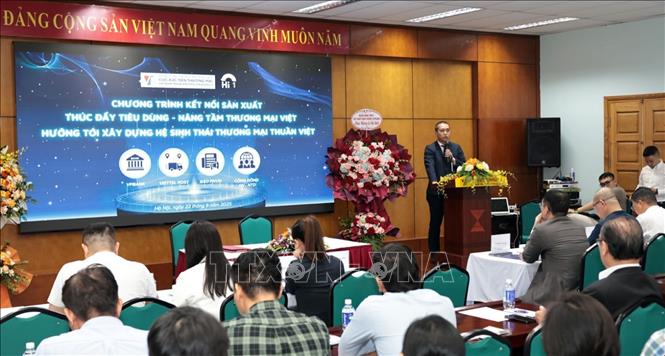
New e-commerce models do not have their own regulations.
With the emergence of new technologies and new platforms such as Big Data and Artificial Intelligence (AI), e-commerce models are becoming increasingly complex and diverse, but currently there are no separate legal regulations.
Deputy Minister of Industry and Trade Nguyen Sinh Nhat Tan said that building a multi-service integration platform, which allows small applications to be placed in the same super application, is becoming a future trend. Instead of having to download all the applications separately, users can download a super application, which contains all the small applications running on it.
However, the problem is the legal responsibility of application owners in relation to the provision of goods and services of small applications integrated on them: How will the parties be responsible if there is a problem during the transaction process? In addition, super applications provide many services, leading to the collection of large amounts of user data (location, transactions, preferences). This raises the issue of personal data protection, which can create the risk of digital platforms taking advantage of unfair competition, directing users, and preventing other organizations and businesses from entering the market...
In particular, a rapidly growing trend of e-commerce is livestream sales. Current legal regulations regulate livestream sales as an advertising activity that accompanies sales, without specific regulations on the subjects participating in livestream (account holders, livestream participants), the minimum information fields that must be provided to viewers, the professional qualifications of the livestreamer, account holder identification, tax obligations and issues of information control during livestream broadcasting.
The fact that the above models and trends go beyond the scope of current policies makes management difficult, especially in issues related to consumer rights protection, personal data protection, and tax evasion. In practice, there have been many cases such as livestream sessions selling billions of dong worth of products but the state cannot collect taxes or international beauty queens livestreaming to sell vegetable candy, exaggerating the product's functions, greatly affecting the purchasing decisions and health of consumers.
As a technology-based commercial activity, e-commerce is greatly affected by the ever-changing and developing technology. Resolution No. 57-NQ/TW of the Politburo affirmed that the development of science, technology, innovation and national digital transformation is the top priority breakthrough, the main driving force for socio-economic development.
Accordingly, creating a legal corridor for new e-commerce models such as automated contracts is very necessary. The United Nations Commission on International Trade Law (UNCITRAL) promulgating the Model Law on the Use and Cross-Border Recognition of Automated Contracts in 2024 has shown the trend and interest of countries and international organizations in automated contracts. In Vietnam, automated contracts have appeared and been applied in many specific specialized fields such as finance, banking, and e-commerce. The problem is to clearly define the legal responsibilities of the parties participating in automated contracts.
Vietnam's e-commerce is highly appreciated by prestigious market research organizations, ranking 3rd in Southeast Asia in terms of scale in 2024 and 5th in the world in terms of growth rate in 2022. The scale of the B2C e-commerce retail market has grown rapidly from 2.97 billion USD in 2014 to 25 billion USD in 2024, with an average growth of 20 - 30% over the period, contributing 10% of total revenue from consumer goods and services nationwide in 2024.
Source: https://baotintuc.vn/chinh-phu-voi-nguoi-dan/phat-trien-thuong-mai-dien-tu-dat-trong-he-sinh-thai-chuyen-doi-so-20250925144156592.htm













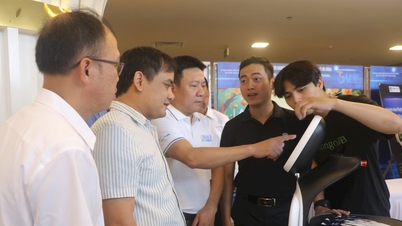

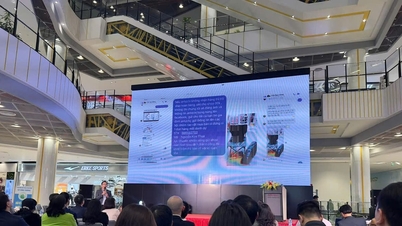






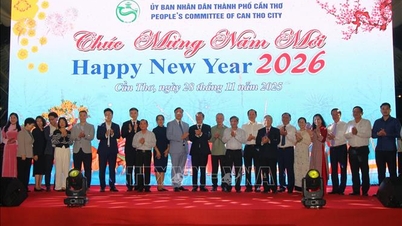
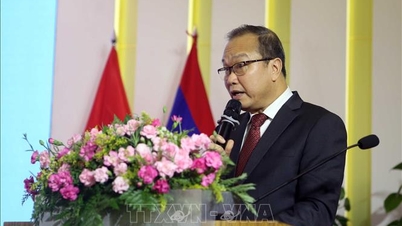





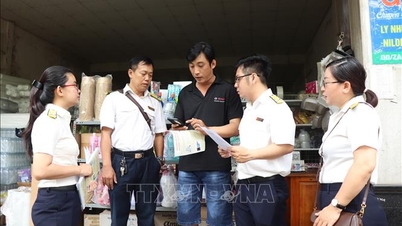
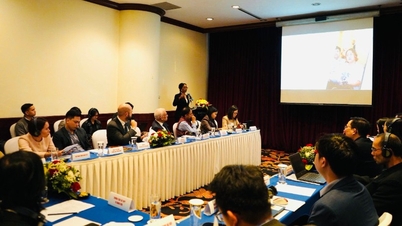

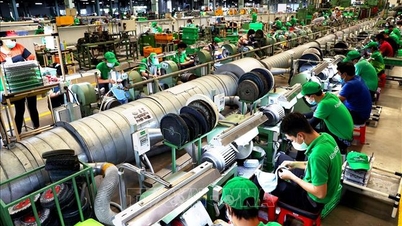
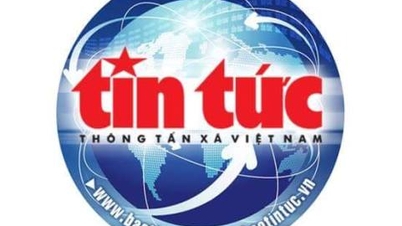


























































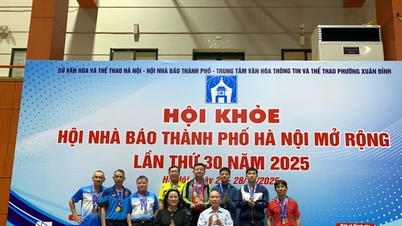













Comment (0)